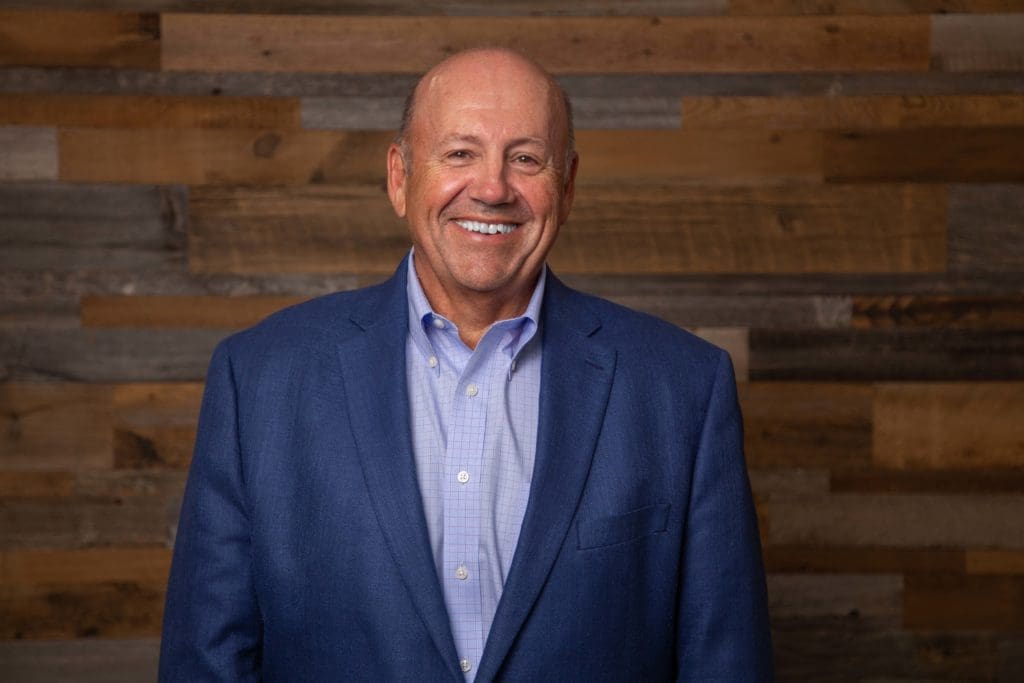Charlie Venus joins the Trusted Advisor once more as a guest before taking on a hosting role. If as an agent, you have been struggling to explain the increase in liability costs, as the impact of social inflation, to your clients this episode will help guide a constructive conversation. Charlies suggests you lead with examples and think about educating the clients first and foremost.
Edwin K. Morris (3s):
Welcome to the trusted advisor podcast brought to you by Iroquois group. Iroquois is your trusted advisor in all things insurance. I am Edwin K. Morris. Today, we’re speaking with Charlie Venus. He joined the Iroquois group in January 2019 as its vice president in middle market and specialty. The former commercial lines leader for Brown and Brown of Virginia is a seasoned insurance professional who will help Iroquois members further develop their middle market and specialty insurance business. What is social inflation? Is that like something to do with the economy?
Charlie Venus (43s):
Ah, good question, man. Well, really it it’s, it’s something unique to the insurance world in it deals with the rising cost of insurance claims that are result of social trends. So views toward increased litigation, broader contract interpretation, plaintiff friendly legal decisions, larger jury awards, things like that. And it’s been around for, for a very long time, but it’s probably just become more in the prominence now in the last, probably the last 15, 20 years.
Edwin K. Morris (1m 21s):
How is it used?
Charlie Venus (1m 23s):
Well, when you look at, you know, some of these claims that we see these huge, huge jury awards, so it’s interpreting the contract, the insurance contract in a way that the insurance companies never thought it would be, you know, it would be used. So they thought they had protection for, from some of these things. And, you know, in many cases where the, you know, the policy is typically responding towards some type of, you know, from a general liability or auto liability standpoint, some type of negligence. And even when there’s not negligence involved, something, when these things get to jury trials, you know, it’s the deep pocket theory, you know, the insurance company has the money.
Charlie Venus (2m 15s):
And so they get a jury award when there’s, you know, for damages that are really astronomical when there wasn’t the intent to pay those kinds of damages.
Edwin K. Morris (2m 27s):
Social inflation catches a hold of an emotional strain of the general public. Is there some gut reaction that drives a lot of this, that pushes things higher?
Charlie Venus (2m 40s):
Well, the social piece of it is just that it’s, you know, it’s not really from an insurance standpoint or negligence standpoint that’s driving, it’s the way society is, is making interpreting laws or interpreting damages. So you look at, you know, one of the things that’s out there now is that there are companies that will fund litigation, so class action suits. They will actually put up the funds to do the class action suit in exchange for collecting 40% or whatever the amount is of the award that, that might come with that class action suit.
Charlie Venus (3m 27s):
So they’re actually, you know, it’s almost like venture capital for us.
Edwin K. Morris (3m 32s):
What was like the big monumental thing that you can think of that was like the first thing that was on the radar and how long ago was that?
Charlie Venus (3m 39s):
Well, if you go back, I mean, if you go back many years ago and we can look at, you know, historically if you go back to the seventies with asbestos and some of the, some of the damages back then, but back then the general liability policy was written in a way that it had a would say the policy limit was a million dollars and it was a million dollars per occurrence. At the time, those policies didn’t have what’s included today, which is known as an aggregate limit. So when you look back and you see all the asbestos litigation that was going on, the, the interpretation was that that $1 million occurrence limit was for every occurrence and every exposure by a different individual was deemed to be a separate occurrence.
Charlie Venus (4m 36s):
Yeah. So you had all of those. So when a company wrote the policy, they thought they had $1 million exposure, but they had $1 million of exposure multiplied by how many, however many people were exposed.
Edwin K. Morris (4m 51s):
Got it. Who, who gets hit the hardest?
Charlie Venus (4m 55s):
I mean, the companies would be hit the hardest, right. And right now, well, you know, these are the liability lines. So general liability, auto liability, umbrella, and excess liability. From an auto standpoint, several things are going on right now. There’s several of the companies have said that there’s an increase of 40% attorney involvement on most auto claims now. So that’s automatically adding 40% cost to those claims. And then when you look at the, you know, the time value of money that a million dollars, typically these policies are a million dollar limits.
Charlie Venus (5m 38s):
And that million dollar limit from 20 years ago was probably somewhere in the neighborhood of $400,000 in those dollars. And with the increase in the, the attorney involvement of these claims, you’re seeing a lot of auto claims that are penetrating the million dollar policy limit going into the umbrella limit. The other thing that’s happening is the deep pocket theories where, because of comparative negligence, contributory negligence, you know, the juries are awarding massive amounts to people that are, that are killed or injured.
Charlie Venus (6m 22s):
So they’re giving out a massive award. So one of things that one of the companies has, and many of the companies do this, but Travelers, for example, they have examples of some of these court cases where it’s not $2 million or $5 million that juries are awarding, but 30 million, 50 million, 25 million – astronomical amounts. So are you asking about the social inflation? You know, what does that mean? It’s just society as a whole, the way that they’re looking to penalize, in many cases, big companies.
Charlie Venus (7m 2s):
You know, you go back to the 2000, the collapse in 2008, and the thought that wall street was bailed out and a lot of the big companies were bailed out. There’s just been massive distrust of larger companies that plays into it as well. It’s like, well, those big companies, they have unlimited resources. They have unlimited dollars that, you know, they can, they can afford to pay these types of claims. Tort reform has been an issue. You know, you, I’m sure you’ve heard that, you know, for years that we need tort reform in the country to mitigate a lot of the frivolous lawsuits that come about, that’s not happening.
Charlie Venus (7m 46s):
And so that’s also contributed to this, to this issue.
Edwin K. Morris (7m 50s):
What would you recommend to an agent that’s looking at this trend and how they translate that to their customers?
Charlie Venus (7m 56s):
Well, I think the biggest thing that the agent to do is number one is educate their, their customer. And one of the ways they can educate their customer is to provide them examples of what’s going on, you know, out there in terms of jury awards, court cases, and how these things are being litigated, and some of the settlements that are being that are being doled out in some of these cases. And, you know, and the one thing that I want to be clear about when somebody is, and having worked on the carrier side and I’ve worked on the agency side, you know, the one thing you want is that if somebody is really injured, you want those people to be taken care of with, without question, you know, the, the rewards, the monetary rewards have to be reasonable as well.
Charlie Venus (8m 48s):
They can’t be so astronomical, but it’s educating, educating the customer in terms of what’s going out there because they’re paying for it because the routes are going up in what you’re seeing right now, from an auto standpoint, you’re seeing rates going up just for, for good accounts with no losses, probably an average of nine to 10%. If they have any loss history over the past couple of years, they’re probably seeing anywhere from 20 to 50%, a lot of the companies that have big auto fleets, they’re having a difficult time getting umbrella coverage or that umbrella coverage that they have is going up 30, 40, 50, some even 80, a hundred percent just depending on their past performance.
Charlie Venus (9m 35s):
So educating the clients in terms of what they have to do. The other thing is just, you know, they have to practice with their clients, risk mitigation strategies, so, you know, understanding their business so that they can help them, or they can bring in a carrier that can help them mitigate their risk. So
Edwin K. Morris (9m 58s):
They’ve got to do a deep dive kind of investigation to understand fully so there’s no holes in this whole concept, right? Because they, they could be doing a very big disservice if they thoroughly do not understand what could be at risk.
Charlie Venus (10m 13s):
Well, right. And just using auto as an example. So, you know, if you have an auto fleet that crosses state lines, they have to come under DOD regulation, you know, and others, you know, there’s, there’s different controls based on the, whether you’re crossing a straight line, the weight of the vehicle. But one of the most important things from a fleet standpoint is driver controls. What are you doing to screen your drivers on a preemployment and then screen them on a periodic basis? Well, think about the fact that if you have a tractor trailer out there and you’ve got a driver in that unit that has had a DUI or reckless operation, and that company did not have any periodic screening in that driver and they get involved in a fatal accident.
Charlie Venus (11m 6s):
So what’s going to happen when that case goes to court. And in some States, you know, there can be punitive damages, you know, against those, those companies against those insureds. So, you know, educating the client, trying to get them to institute risk mitigation, loss control practices, loss prevention is critical
Edwin K. Morris (11m 29s):
Is there a source of anything of the social inflation to give indicator across the board where things are by industry, or is this just everybody do their own synthesis and, and consumption of all the what’s happening or what’s happened in the last 10 years to give themselves an indicator based on your own interpretation.
Charlie Venus (11m 51s):
I’m not aware of anything out there that’s on an industry basis. It’s more, I would say it’s more based on the, the type of insurance you’re talking about. So, and right now that’s auto liability is a big one, you know, general liability and umbrella liability. Now, when you get, you also see that employment practices, which is a coverage for if a company is sued for harassment or wrongful termination or discrimination, you know, employment practices liability will respond to that. And, you know, you’re seeing more and more cases in that area, too, particularly as an outgrowth of the me too movement.
Charlie Venus (12m 39s):
So, you know, that’s been an area, you know, some other things going on, that’s employment related, there’s this legislation out there that allows, it’s called reviver legislation. And so there’s statute of limitations and all the States have those, those timeframes vary. What this reviver legislation is doing is, and it’s done on a state by state basis, they eliminate the statute of limitation for a period of one to two years. So if, if someone was, thought they were harassed in their employment going back twenty-five years ago, there’s going to be this open window to go in and file a claim against, against those companies.
Charlie Venus (13m 29s):
And again, and this is, this is all part of the, you know, the social inflation. So companies are prepping for this because they think they’re going to have, you know, a lot of claims coming up and every state opens up this reviver legislation window.
Edwin K. Morris (13m 45s):
Wow. That’s going to be a big change.
Charlie Venus (13m 47s):
Very big change. And so that’s why we, you know, educating customers and then really trying to get them to employ good risk mitigation and risk management controls is important.
Edwin K. Morris (13m 59s):
Thanks for sharing your awesome wealth of knowledge. My man, it’s good to see you again.
Charlie Venus (14m 4s):
All right. Well, thanks Edwin. Good talking to you.
Edwin K. Morris (14m 8s):
Thanks for listening to this edition of the trusted advisor podcast brought to you by Iroquois group. Iroquois, your trusted advisor for all things insurance, and remember get out of the office and sell. I am Edwin K. Morris, and I invite you to join me for the next edition of the trusted advisor podcast.



